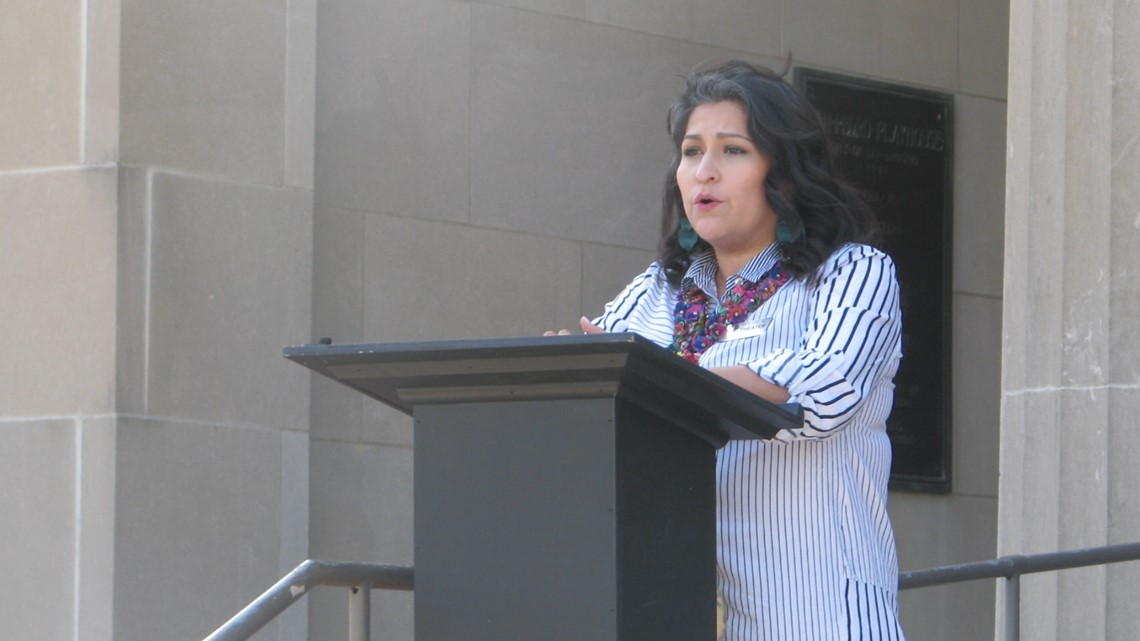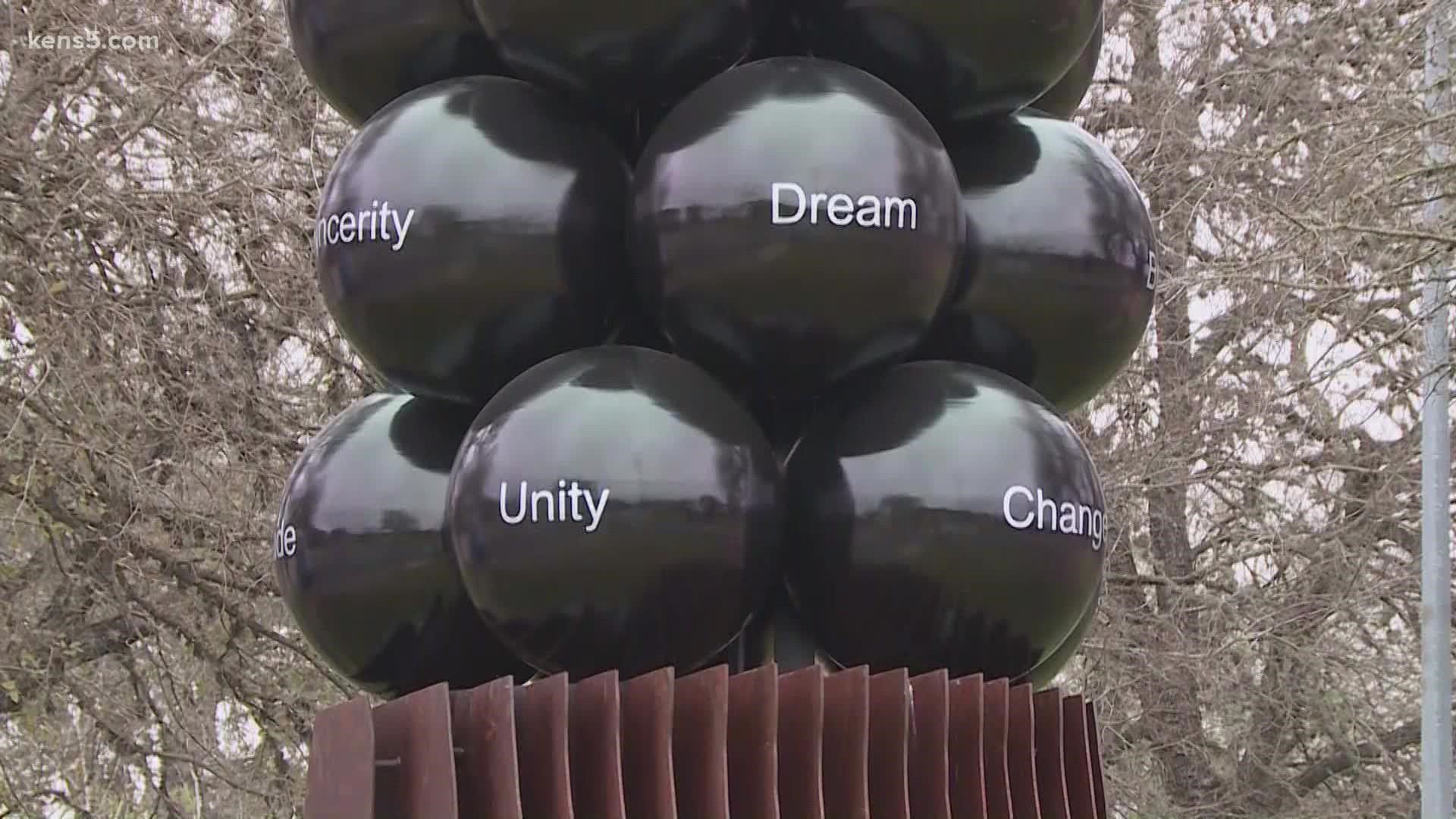SAN ANTONIO — In a move indigenous representatives called a good first step "to reverse the erasure of the aboriginal people in San Antonio," leadership at the Public Theater has formally recognized the indigenous foundations upon which the historic theater resides.
And they say more plans are in motion to give the native community a bigger share of the spotlight.
"I hope that by lifting them up, voicing their existence and giving them a platform, we can use storytelling to support the work they are doing to serve their people," said Claudia de Vasco, executive artistic director at the Public.
The official acknowledgement promises to "connect our theater to the history that predated it," while specifically recognizing the indigenous groups making up the Coahuiltecan community "who continue to be excluded from processes that directly affect their cultural traditions, ancestors and future descendants."
De Vasco and other Public Theater executives were joined by the American Indians in Texas at Spanish Colonial Missions (AIT) in a February event to formalize the pledge, but the partnership goes back to last fall and de Vasco's first days on the job.


While she said land acknowledgements are "pretty common" for theater groups across the country, it was apparently not as wide-ranging for the Alamo City's artistic community.
"Reaching out to AIT was one of the first things I did back in September," de Vasco said. "We'd been discussing both an official acknowledgement and also other ways to support their community."
A few months later, those additional steps have taken shape. They include collaborative with Native Americans for new arts projects, reserving space in the Public's forthcoming play development program for an indigenous writer and welcoming Tap Pilam Coahuiltecan Nation leader Isaac "Papa Bear" Alvarez Cardenas to the theater company's artistic advisory committee.
On an environmental level, de Vasco says, the Public will set aside dedicated time to help clean San Pedro Springs Park, where the theater is located.
Perhaps most significantly, and in line with her mission of diversifying the experiences that get to be shared on the Public Theater's stage, de Vasco said she'd like to organize shows focused on the story and culture of south Texas's indigenous tribes, specifically the Coahuiltecans who called San Antonio home.
"My hope is that as we make space for indigenous artists to tell their stories on our stage, through the acknowledgement, through public art, that they can begin being a greater part of the history we teach and retell in this area," de Vasco said.
AIT officials say they're optimistic that the Public is doing more than paying lip service through the land acknowledgement statement.
"We have partnered so sincerely with them because they are including actionable steps to generate equity, not just putting a land acknowledgement statement up for cosmetics," Development Director Karla Aguilar said.
American Indians in Texas focuses on preserving the stories of the Native Americans who lived in the region, as well as their descendants who remain, through means social, cultural and economic.
The Public isn't the first local institution to work with AIT in that regard. According to Aguilar, the organization has collaborated with Texas A&M, Incarnate Word, the San Antonio Museum of Art and the San Antonio Area Foundation.
What partnering with a theater company like the Public provides, Aguilar says, are resources for AIT to grow its storytelling efforts and more directly reach the community.
"The theater is making a way for native creators to gain access to training and production processes, which are incredibly important for any artists," she added. "This is setting an example of how to generate visibility for us and make a more equitable scene possible."
Those resources are especially important for Coahuiltecan tribes in Texas, Aguilar says, seeing as they are unable to take advantage of resources from government agencies. The reason: More than 570 tribes have been federally recognized, making them eligible for funding and other services.
But the Coahuiltecan community is not among them. Instead, they're lumped into general statistical categories.
"We have our work cut out for us," Aguilar said.
For now, the Public has made a new commitment to sharing the story of the land it was built on a century ago.
"Thoughtful leadership makes all the difference," Aguilar said. "And the Public Theater has that now."
---
Trending on KENS5.com:

